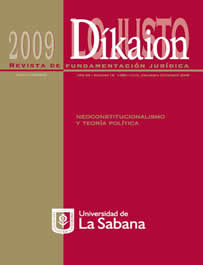An Approach to the Principles of Interpretation and Binding Precedents in the Jurisprudence of Peru’s Constitutional Court
Keywords:
constitutional interpretation, principles of constitutional interpretation, living constitution, manipulative sentences, constitutional precedent.Abstract
Unity, practical concordance, functional correction, integrative function, normative status and pro homine, among others principles, are instruments that have enabled us to understand that traditional methods of interpretation are not enough to reach justice in a concrete case concerning constitutional matters. Besides, taking into account the kinds of decisions rendered by the Constitutional Court and the creation of binding precedents, lead us to a stage of transition, from a “legal judge” to another of constitutional formation This process also constitutes the new position of a Court specialized in abstract constitutional review, i.e., an institution conceived as a negative legislator which later became a positive one. In this article, our attempt consists in approaching to the new role corresponding to the Constitutional Court, with especial reference to the Peruvian case, as well as to the necessity of harmonizing the principles of constitutional interpretation.
Downloads
How to Cite
Issue
Section
License
1. Proposed Policy for Journals That Offer Open Access
Authors who publish with this journal agree to the following terms:
This journal and its papers are published with the Creative Commons License Attribution-NonCommercial-NoDerivatives 4.0 International (CC BY-NC-ND 4.0). You are free to share copy and redistribute the material in any medium or format if you: give appropriate credit, provide a link to the license, and indicate if changes were made; don’t use our material for commercial purposes; don’t remix, transform, or build upon the material.






